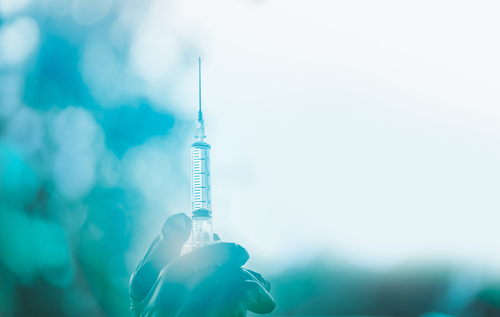No one is safe until everyone is safe
To end the pandemic, the virus needs to be stamped out simultaneously across the world, but government hoarding and export restrictions are getting in the way of making this happen
It is now more than 21 months since COVID-19 was first reported, and 10 months since the first vaccines were approved, and yet this pandemic continues to rage. There are many things that we can and must do to prevent future pandemics. But if we want to stop the next one from escalating into a prolonged global crisis on the scale we are continuing to see today, then global leaders need to work out how to get vaccines to people all across the world faster.
At the initial stage, we could perhaps be excused for being caught unaware by this novel coronavirus. But with 21 vaccines now available and 6.3 billion doses administered, only around 26% of people in lower-income countries have had their first shot, and a little more than 2.5% in low-income countries. For that to be the case this far into the pandemic is not a reflection of our preparedness, but a damning indictment of the global pandemic response.
For many of us the frustration is that we already have much of the infrastructure and networks in place to orchestrate a global response, by making vaccines equitably available to people in all corners of the world through COVAX. Despite facing unprecedented challenges, from vaccine hoarding and export restrictions by wealthy countries to delays in manufacturers scaling up, all of which have hit our supply lines, COVAX has nevertheless demonstrated that it works. So far it has delivered more than 344 million doses to 144 economies, the vast majority going to people in the 92 poorest countries. And by the end of the year, we hope to have made 1.4 billion doses available, increasing to 4.4 billion through 2022. But with COVID-19 and future pandemics, G20 governments can and must help us get there quicker.
What needs to change
Failing to do so – failing to get more vaccines to people in all countries more quickly – is the principal reason why the virus is still winning. Until now governments have focused on tackling the pandemic at the national level, striving to achieve high vaccination coverage within their own borders, rather than building it up globally. This has only prolonged the pandemic. But with infectious disease you cannot extinguish a global inferno one country at a time. It needs to be simultaneously stamped out all across the world, or it will just continue to spread, increasing the risk of new and potentially more dangerous variants emerging.
As G20 leaders start to look towards future pandemic preparedness, and the kinds of institutions or funding bodies needed to prevent the next one, it is imperative that any solution be based on common global strategies that support a truly global response, including equitable access to vaccines. It will need to be smart, be cost-effective and, like COVAX, make use of existing networks of collaboration that build on pre-existing expertise, infrastructure and resources, while avoiding duplication and additional layers of process that could further delay a future response effort. And it will need to leverage innovative financing and use contingency funding to support surge capacity, so agencies can respond quickly during crises.
In the meantime, G20 governments have an immediate role to play in leading the way out of the current pandemic, by making more doses available to COVAX and ending all export bans. By the end of this year more than 12 billion doses will have been produced, enough to protect every adult on this planet, but many wealthy countries already have more than they need to fully vaccinate all their adults, but also teenagers. We need those surplus doses and we need them now.
Some governments, including some G20 members, are already helping by generously committing funds and providing more than 1.3 billion doses to low-income countries through COVAX. But we need much more and we need them to arrive sooner. To build up global coverage and stop the virus from circulating, we need those surplus doses as soon as possible, and we need them to arrive with long enough shelf-lives so that low-income countries can make the best use of them. G20 members can also help get us there quicker by ending all export restrictions and by giving up their place in the production supply lines to COVAX, particularly those countries with orders that they cannot use in the immediate term.
Many of these measures would not be necessary if there was equitable access to begin with. As we start to shape our future pandemic response, these lessons need to be factored in, as well as proven successes, like COVAX. Whatever form future pandemic preparedness takes, if we are to avoid a repeat of this crisis then the reality that “no one is safe until everyone is safe” needs to sink in much faster, because the only way to avoid this from happening again is through faster global equitable access.












